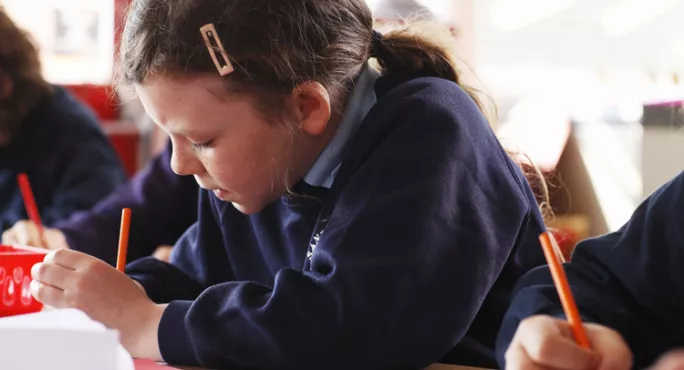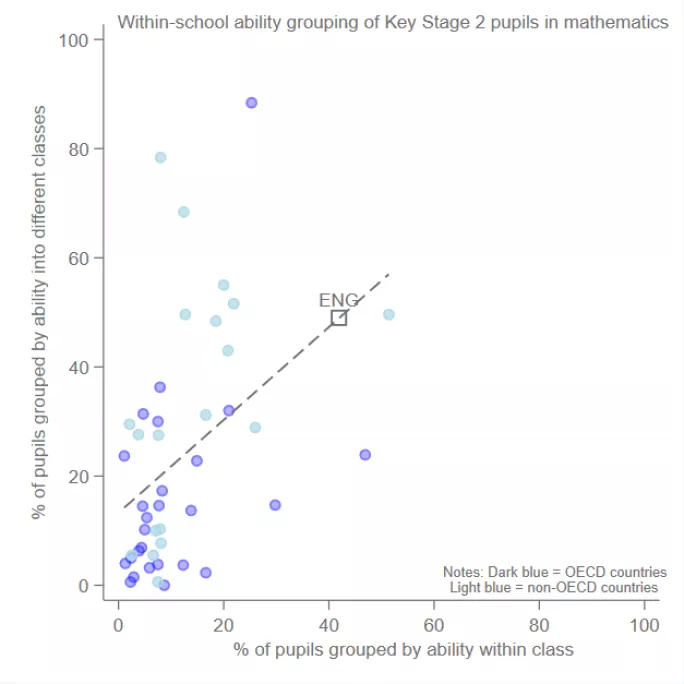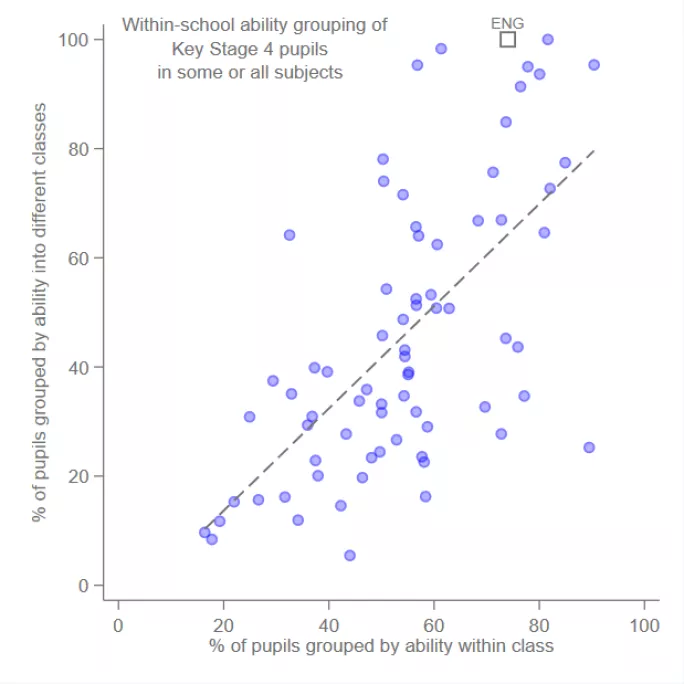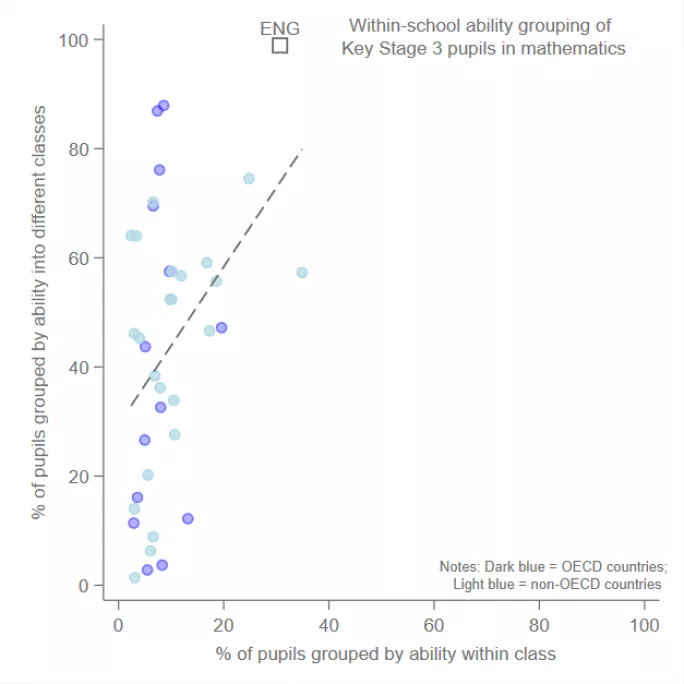England uses setting and streaming to group pupils by ability more than most other developed countries, according to new analysis.
The study found pupils in Year 5 were much more likely to be grouped by ability in maths lessons than pupils of the same age in other developed countries.
Viewpoint: When it comes to selection, how Darwinian are you?
Opinion: ‘Grouping primary children by ability is indefensible’
Classroom practice: The 12 dos and don’ts of setting
And the analysis, published today by John Jerrim, professor of education and social statistics at the UCL Institute of Education, found that England “particularly stands out” in its use of setting and streaming, and that it has “much higher rates of within-school ability segregation than in other developed countries”.
Professor Jerrim analysed data from two international tests: Pisa, the Programme for International Student Assessment, which looks at the performance of 15-year-olds in reading, maths and science; and Timss, the Trends in International Mathematics and Science Study, which covers maths and science for pupils in Year 5 and Year 9.
In the 2015 rounds of Pisa and Timss, teachers and headteachers were asked whether their school had a policy of “setting” pupils of similar ability together in the same class for their lessons.
They were also asked how often teachers made pupils work together in ability groupings within the same lesson - for example, where higher achievers might sit together on one table and lower-ability pupils on another.
The data compared whether pupils in different countries were segregated by ability at key stage 2, key stage 3 and key stage 4. For KS2 and KS3, the analysis covers maths lessons only, while for KS4 it covers “some” or “all” subjects.
Professor Jerrim noted that other countries that are members of the Organisation for Economic Co-operation and Development (OECD) separate pupils by ability too - both the Netherlands and Northern Ireland “track” pupils of different ability into different schools, in a similar way to parts of the UK, such as Kent, which have retained the grammar school system.
Yet England still comes out top when it comes to many forms of segregation by ability in comparison with other developed nations.
“The results are stark. In each graph, England is towards the top right-hand corner,” Mr Jerrim wrote.
The Education Endowment Fund (EEF) has previously found that “on average, pupils experiencing setting or streaming make slightly less progress than pupils taught in mixed-attainment classes”.
It also found that there was “a very small negative impact” on attainment for lower- and mid-ability pupils and an equally small positive impact for higher-ability pupils.
Professor Jerrim wrote: “Those who are least likely to benefit, and most likely to suffer negative effects [of setting and streaming], are low-achieving disadvantaged pupils who get placed together in the bottom group/set.
“This, in turn, is likely to undermine government attempts to reduce educational inequality and enhance social mobility.”







